SUMMARY
This is AI generated summarization, which may have errors. For context, always refer to the full article.
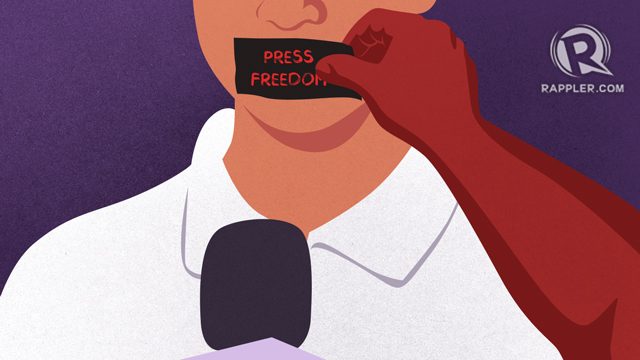
MANILA, Philippines – On World Press Freedom Day, member-states of the Association of Southeast Asian Nations (ASEAN) continue to fall below the standards of a free press, with data showing consistent ranking at the bottom half of the Reporters Without Borders’ (RSF) Press Freedom Index.
The 2023 index ranks 180 countries around the world, based on political, legal, sociocultural, economic, and media safety factors.
“In countries (in the Asia-Pacific) reputed to be more democratic, the media face pressure from increasingly authoritarian and/or nationalist governments,” the RSF’s analysis of the region wrote.
Data from ASEAN countries show that almost all member-states rank at the bottom half of the index. The Philippines, one of the few democratic republics in Asia, ranks 132nd, lower than neighbors Malaysia (73rd), Indonesia (108th), and Singapore (129th).
In this timeline, you can see ASEAN member-state rank changes over the years, starting from 2012. You can choose from the drop-down options which country whose timeline you want to focus on.
It’s important to note that the RSF’s formula for calculating a country’s rank has changed over the years, as recently as its 2022 index:
What press freedom challenges have ASEAN member-states faced in recent times?
Government-controlled media
Countries like Vietnam (178th) and Laos (160th) do not have free, independent media. Vietnam ranks the lowest amongst the ASEAN in 2023.
The Communist Party of Vietnam had controlled the country since the end of the Vietnam War in 1975. In turn, all major forms of media have been under party control.
Print and radio are controlled by the sole-ruling Lao People’s Revolutionary Party, which limits and censors foreign press operating in the country.
Since the military coup on February 1, 2021, press freedom in Myanmar has become non-existent. The country, from ranking 140th in 2021, dropped to 176th in 2022. The country is No. 173 this year.
With social media sites blocked from internet access, as well as the suspension of operation licenses for local media groups, the military junta now in control in Myanmar tightened its grip on the kind of information that can be presented to the outside world.
Constricting legislation
Singapore passed the Foreign Interference (Countermeasures) Act in 2021, banning local media from reporting on politics “on behalf of a foreign principal,” but still seemingly allows foreign reporting and commenting on Singaporean politics.
A Vietnamese cybersecurity law that passed in 2019 required technology firms such as Facebook and Google to store data on Vietnamese users locally.
Foreigners who wish to cover events in Laos are required by law to ask for permission for coverage, and submit their articles for approval afterward.
Brunei’s (No. 142) Sedition Act makes it a crime to criticize the Sultan or the royal family. Thailand (No. 106) is known for its strict “lese majeste” laws, criminalizing defamation, insults, and even threats against the King and his family.
Freedom of information
Singapore’s Protection from Online Falsehoods and Manipulation Act in 2019 allows the government to revise or correct online information that is deemed “false,” allowing political critics to be effectively silenced.
The Philippines under the Aquino administration in 2013 had failed to pass the Freedom of Infomation (FOI) bill, a major blow to government transparency and press freedom at the time. Signed in 2019 under the Duterte administration, the FOI system faces roadblocks, especially when requests are deemed “vexatious“.
In Cambodia (147th), Prime Minister Hun Sen has been active in the suppression of media, ordering closures in 2018 of different social media pages that would incite turmoil and unrest that could undermine national security.
It has only stepped up its efforts to suppress the media, as the country nears its July 2023 national elections.
Threats to media workers
Any negative reporting in Laos can have criminal consequences. In 2019, Houayheuang Xayabouly was sentenced to five years in prison for reporting on the government’s poor response to flooding in the country.
The Vietnamese 1990 Press Law (amended in 2016) states that the press has the responsibility to report truthfully, followed by a statement on protecting the interests of the ruling party.
In the Philippines, the drawn-out rounding up of those involved in the deadly Maguindanao massacre also dealt a blow to justice for the 32 journalists killed in the massacre.
Even in 2022, victims continue to wait for justice for their loved ones killed at the hands of the Ampatuan clan in the Maguindanao region.
According to RSF numbers, 74 journalists and a media worker are currently detained in Myanmar.
Glimmer of hope
Despite the repressive atmosphere of press freedom in ASEAN, recent events offer hope for a turnaround in the region.
Rappler CEO Maria Ressa, who has been the target of court cases in the Philippines since 2018, including cyber libel, libel, and tax evasion charges, was recently acquitted of four charges of tax evasion in January 2023.
The Cambodian Journalists Alliance Association, founded in 2019, is a group formed by Cambodian journalists that helps protect independent media workers in the country.
Indonesia, despite legislation that attempts to limit criticism against the government and religions, faces a unique challenge: being able to deliver news to almost 280 million Indonesians in the country.
RSF estimates there are 100,000 journalists in the country, meaning there is one journalist for every 2,800 Indonesians.
Timor-Leste, an ASEAN member “in principle,” ranks the highest among the regional group, in 10th spot, from 17th in 2022 and 71st in 2021. The youngest democracy in Asia, the island nation boasts of publications in Tetum, Portugese, and English.
Despite the decriminalization of libel in 2009, the country’s media practitioners are still susceptible to government pressure on what should and should not be reported.
Timorese journalist Francisco Belo Simões da Costa was sued in May 2022 over a corruption story, on the grounds of “slanderous denunciation,” a workaround term for defamation in the country. – Rappler.com
Add a comment
How does this make you feel?


![[ANALYSIS] How one company boosts farmer productivity inside the farm gate](https://www.rappler.com/tachyon/2024/06/bioprime-farmgate-farmer-productivity-boost.jpg?resize=257%2C257&crop=465px%2C0px%2C1080px%2C1080px)

![[In This Economy] Is the Philippines quietly getting richer?](https://www.rappler.com/tachyon/2024/04/20240426-Philippines-quietly-getting-richer.jpg?resize=257%2C257&crop=194px%2C0px%2C720px%2C720px)



![[Judgment Call] Who’s after Quiboloy? The media should be.](https://www.rappler.com/tachyon/2024/04/judgement-call-quiboloy-media-2.jpg?resize=257%2C257&crop=484px%2C0px%2C1080px%2C1080px)




![[OPINION] You don’t always need a journalism degree to be a journalist](https://www.rappler.com/tachyon/2024/06/jed-harme-fellowship-essay-june-19-2024.jpg?resize=257%2C257&crop=287px%2C0px%2C720px%2C720px)





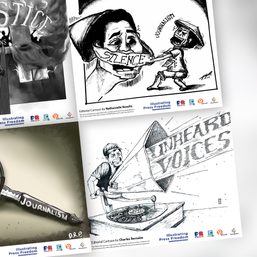
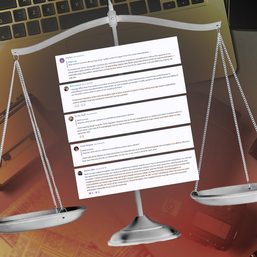
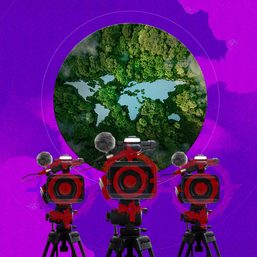
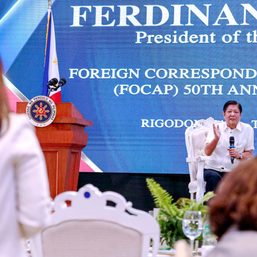
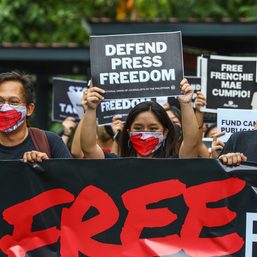
There are no comments yet. Add your comment to start the conversation.